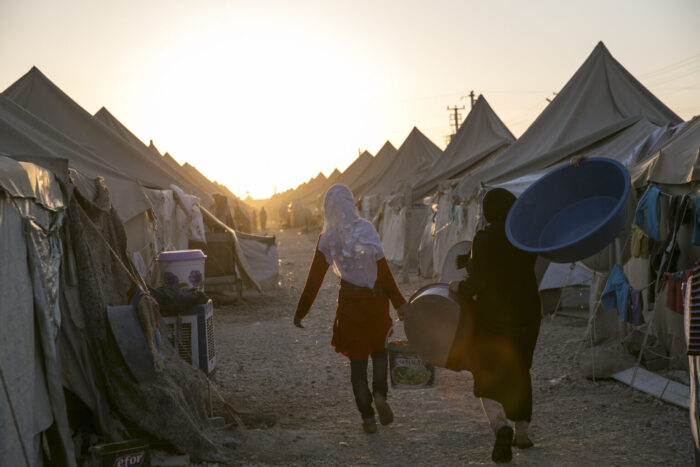Read the latest research from this project:
Thinking Long-term about Syrian Refugees in Jordan, Lebanon and Turkey
- Summary Report — Thinking Long-term about Syrian Refugees in Jordan, Lebanon and Turkey (PDF)
- Summary Report — Arabic Version (PDF); Turkish Version (PDF)
- Moving beyond Humanitarian Assistance: Supporting Jordan as a Refugee-hosting Country — Rasha Istaiteyeh, Belal Fallah and Yusuf Mansur
- The Economic Impact of the Syrian Refugee Crisis in Lebanon: What It Means for Current Policies — Cathrine Brun, Ali Fakih, Maha Shuayb and Mohammad Hammoud
- Improving Syrian Refugee Inclusion in the Turkish Economy: How can the International Community Help? — Murat Erdoğan, Kemal Kirişci and Gokce Uysal
What are the realistic alternatives for Syrian refugees and the governments that host them in the medium- to long-term? How can host countries be supported to continue hosting refugees in light of growing pressures for return?
Jordan, Lebanon and Turkey have hosted Syrian refugees since the very beginning of the conflict in 2011. Presently over 5 million Syrians live in these three countries, each of which has its own unique political, social and economic context. As the Syrian conflict either winds down or enters a new phase (see USIP Syria Study Group 2019), the fate of the refugees depends on political and economic developments in Syria, on the willingness of host countries to allow them to remain, and on international support for host countries. Pressures on the refugees to return to Syria are increasing and are likely to grow even further in the coming months and years. While the international community has mobilized huge amounts of humanitarian assistance, the host governments need additional support to allow the refugees a chance for security, self-reliance and dignity in their countries of refuge.
Not only is this question important for the 5+ million individual refugees currently living in uncertainty and poverty, but it is also important for the international refugee system — which has been stretched to the breaking point in recent years. The World Refugee & Migration Council, established in 2017 to propose bold new ideas for transforming the global refugee system, did indeed make innovative suggestions for inter alia punishing perpetrators of refugee flows by confiscating and re-purposing their revenues, using international trade and financial institutions to support host countries, mobilizing private sector involvement, creating new platforms for finance investors, and supporting refugee self-reliance (2019).
This research project will provide the necessary research to translate these recommendations into concrete action plans to alleviate the pressure on host countries and to prevent refugees from being forced to return prematurely.
The analysis will focus on the following themes:
- Analysis of the impact of hosting refugees on the economy, including an overview of current economic situation of the country (employment, trade, debt, aid and financial concessions, remittances etc.) and assessment of Council recommendations on using trade preferences, increasing engagement of private sector, changing IMF practices.
- Mapping and analysis of impact of humanitarian assistance on Jordan (particularly impact on public institutions (vs NGOs), economy, refugee well-being.
- Analysis of possibilities of return of Syrian refugees to Syria including analysis of relevant laws & policies in Syria that will affect Syrians (e.g., Property Law No. 10 & amendment, gender issues, citizenship for babies born abroad, IDPs), evolving understanding of Syrian reconstruction plans/finances, possible reintegration assistance for returning refugees.
- Review and analysis of attitudes toward return and local integration of Syrian refugees and host communities, including dis-aggregating (where possible) attitudes by gender and age.
